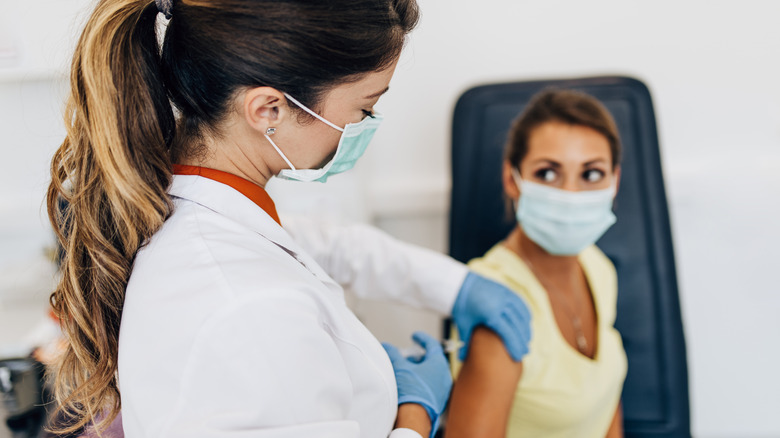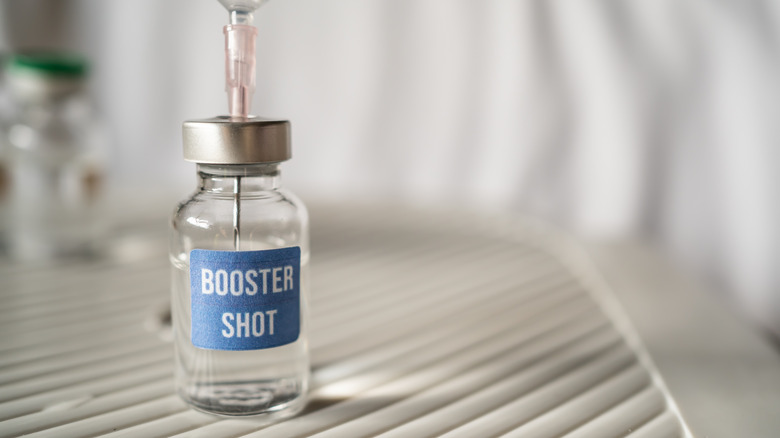What Can The U.S. Learn From Israel's COVID-19 Booster Shot Rollout?
After offering a third dose of the COVID-19 vaccine to citizens over 60 in July and opening those doses to everyone at the end of August, Israel is seeing a sharp decline in COVID cases (via Daily Mail). Not long ago, Israel's COVID cases were rising after the country reopened its economy. According to the Daily Mail, "a total of 4,632 people tested positive on Sunday [September 5] — the most recent day data is available for — down 20% on the week before (5,809). The country's seven-day average is now around 7,300, down from nearly 8,000 the week before." Hospital admissions and deaths are also seeing a decline.
Israeli Government adviser and data scientist Professor Eran Segal believes the decline in COVID cases is largely due to the booster shot rollout. The country is expected to present data taken from their COVID inoculation program to the United States Food and Drug Administration this month. Their study findings state, "In conjunction with safety reports, this study demonstrates the effectiveness of a third vaccine dose in both reducing transmission and severe disease and indicates the great potential of curtailing the Delta variant resurgence by administering booster shots." Although experts agree that more data would be useful, the study is clear that a COVID-19 booster can significantly reduce the likelihood of someone being infected with the virus after their initial doses begin to become less effective.
The U.S. is planning to offer COVID-19 booster shots to Americans this fall
On August 13, the U.S. Food and Drug Administration authorized a third dose of the Pfizer-BioNTech and Moderna COVID-19 vaccines for people who are immunocompromised, with the Centers for Disease Control and Prevention giving final approval shortly after (via New York Times). Americans who are currently eligible for a third dose include those who are actively receiving cancer treatments that affect the immune system, people with advanced HIV, people who have recently had an organ transplant, and people with a small number of other health concerns (via UChicago News).
Booster shots are not currently available to Americans. In August, U.S. health officials announced a plan to begin a booster shot rollout that could start as early as September 20 (via AP News). However, a third dose has still not been approved for anyone who is not immunocompromised as officials are still debating about the necessity of a booster shot. Today, the World Health Organization called for countries to pause their booster shot programs for two more months, or until everyone has had a chance to receive their first and second doses of the vaccine (via Forbes). Many low- and middle-income nations have still not received enough doses to offer even a single shot to all of their citizens. The FDA and CDC have not commented on the WHO's request at this time.


